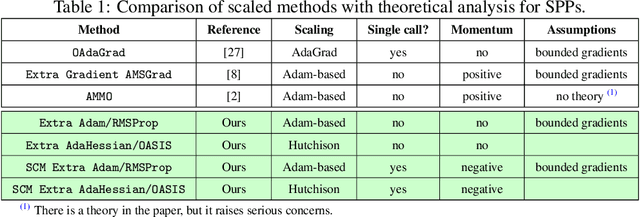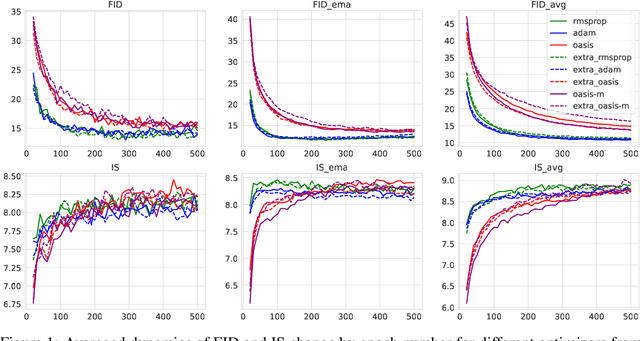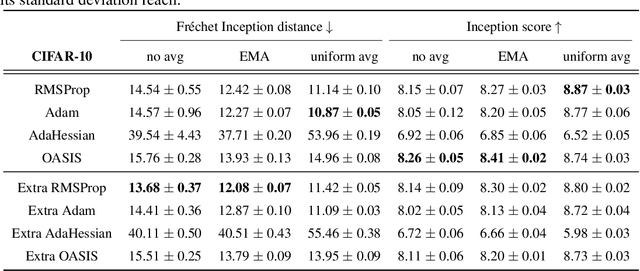On Scaled Methods for Saddle Point Problems
Paper and Code
Jun 16, 2022



Methods with adaptive scaling of different features play a key role in solving saddle point problems, primarily due to Adam's popularity for solving adversarial machine learning problems, including GANS training. This paper carries out a theoretical analysis of the following scaling techniques for solving SPPs: the well-known Adam and RmsProp scaling and the newer AdaHessian and OASIS based on Hutchison approximation. We use the Extra Gradient and its improved version with negative momentum as the basic method. Experimental studies on GANs show good applicability not only for Adam, but also for other less popular methods.
* 51 pages, 2 algorithms with 4 options for each, 12 figures, 5 tables,
2 theorems
 Add to Chrome
Add to Chrome Add to Firefox
Add to Firefox Add to Edge
Add to Edge